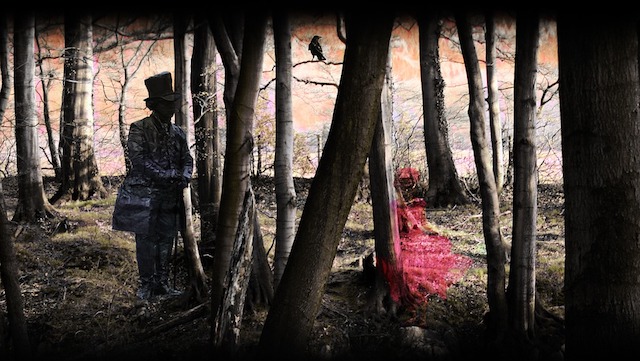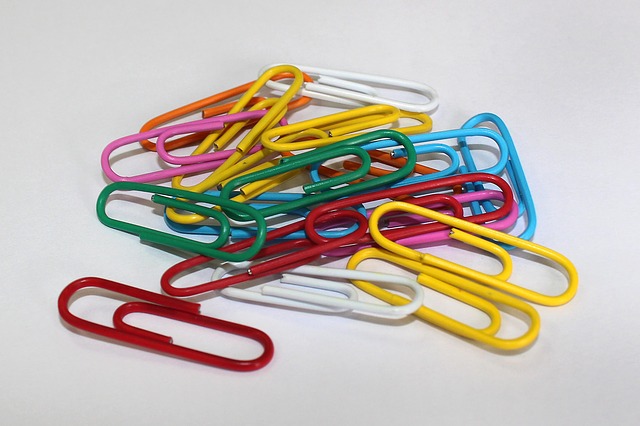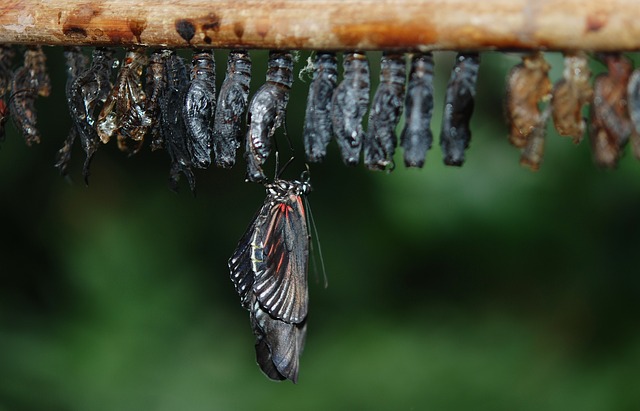Here is a list of the most common flowers that you will find at a florist.

Amaryllis:
Its botanical name is hippeastrum. It’s a bulbous plant native to South America from Argentina to Mexico and the Caribbean. These flowers can bloom indoors in the winter months.
botanical: scientific bulbous: from a bulb
native to: originally growing in bloom: produce a flower

Aster:
They are also known as Michaelmas daisies. They are native to North American and Eurasia. They are popular as garden plants. The name comes from the Greek word “star” because of the shape of the flower.

Bird of paradise:
It’s botanical name is strelitzia. They are native to southern Africa. They bloom all year long.
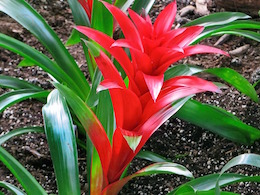
Bromeliad:
These flowers are native to the tropical Americas. They can store water in their leaves.
tropical: warm and wet

Buttercup:
Its botanical name is Ranunculus. They bloom in the spring and can continue all summer long.

Carnation:
Its botanical name is dianthus caryophyllus. This flower is native to the Mediterranean region. It has a nice fragrance.
region: area
fragrance: smell
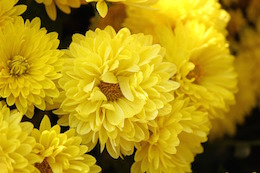
Chrysanthemum:
They are also called mums. These flowers are native to Asia and northeastern Europe. They are traditionally yellow but can also be white, purple and red.
traditionally: mostly in its history
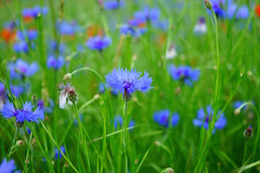
Cornflower:
Its botanical name is centaurea cyanus. It is native to Europe. It blooms all summer long.

Crocus:
These flowers grow all over the world and are among the first flowers in the spring. They are mostly dark purple, light purple, yellow or white.

Daffodil:
Its botanical name is narcissus. It is one of the earliest spring flowers. The flowers are a trumpet shape and come in white, yellow, orange or pink.
trumpet: narrow on one side and opening wide on the other

Dahlia:
This flower is native to Mexico. It comes in most colors but not blue.
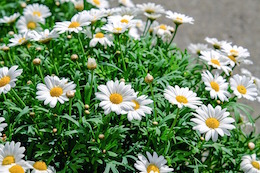
Daisy:
Its botanical name is asteraceae. There are over 32,000 species of this flower, including the aster and sunflower.
species: different kinds

Foxglove:
Its botanical name is digitalis. This flower is native to southwestern Europe, western and central Asia and northwestern Africa. It comes in purple, pink, white and yellow.
it comes in: its colors are

Gladiolus:
This flower is native to Asia, Mediterranean Europe, South Africa and tropical Africa. They come in red, orange, pink, light purple, cream and white.

Hibiscus:
These flowers are native to warm-temperate, subtropical and tropical regions of the world. They come in white, pink, red, orange, peach, yellow and purple.
temperate: not too hot, not too cold
subtropical: next to tropical areas
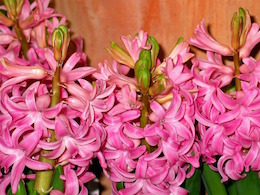
Hyacinth:
Its botanical name is hyacinthus. This is a bulbous plant native to the eastern Mediterranean region. It is very fragrant and comes in red, blue, white, orange, pink, violet and yellow.

Impatiens:
It’s also called touch-me-not. This flower is found throughout the Northern Hemisphere and the tropics.
throughout: everywhere in
tropics: tropical regions

Iris:
Its name comes from the Greek word for rainbow because of the many colors of this flower. It’s found in temperate Northern Hemisphere areas. They are mostly purple and blue but can also be yellow, pink, orange and white.
Northern Hemisphere: the top half of the earth

Lavender:
Its botanical name is lavandula. It is native to Europe, the Mediterranean region, southwest Asia and India.

Lily:
Its botanical name is lilium. It is a bulbous plant native to the temperate Northern Hemisphere. Lilies are among the most popular flowers in the U.S. Lilies are lovely smelling and come in many unique colors.
lovely smelling: with a nice smell unique: not common

Lotus:
Its botanical name is nelumbo nucifera. This water plant is native to tropical Asia and Queensland, Australia. A single lotus can live for over 1000 years.

Marigold:
Its botanical name is tagetes. It is native to North and South America. They come in golden, orange, yellow and white colors.

Morning glory:
Its botanical name is convolvulaceae. The flower opens up in the early morning and closes at night. The flowers grow along a vine.
vine: very long stem

Orchid:
Its botanical name is orchidaceae. There are about 28,000 species of this flower.

Pansy:
Its botanical name is viola. It is native to Europe and western Asia.
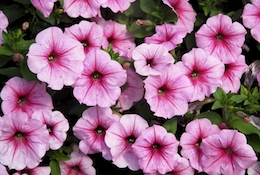
Petunia:
Petunias are native to South America. Its showy trumpet-shaped flowers make it popular for summer flower beds and window boxes. They come in blue, purple, pink, red and white.

Peony:
Its botanical name is paeonia. It is native to Asia, Europe and western North America. These flowers bloom in late spring and early summer. They are often fragrant and come in a range of colors from purple red to white or yellow.

Poppy:
Its botanical name is papaveraceae. They grow in temperate regions and bloom from spring into early summer.

Primrose:
Its botanical name is primulaceae. These flowers bloom in early spring and last all summer. They come in white, cream, yellow, orange, red, pink purple and blue.

Rose:
This flower is native to Asia, Europe, North America and northwestern Africa. There are over a hundred species of this flower. The colors range from white through yellows and reds.
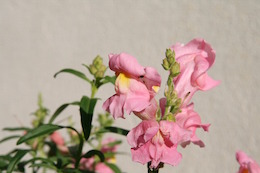
Snapdragon:
Its botanical name is antirrhinum. They are also called dragon flowers. These flowers are native to rocky areas of Europe, the United States and North Africa.
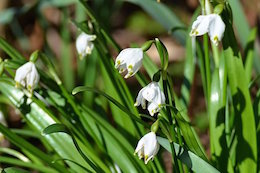
Snowdrop:
Its botanical name is galanthus. It is a bulbous plant that blooms in late winter. This flower is native to Europe and the Middle East.

Sunflower:
Its botanical name is helianthus. This flower is native to North America. The young plant turns to face the sun, but after the flower blooms, it stops and faces east.
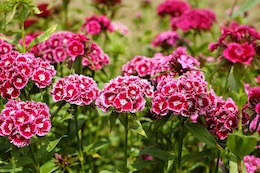
Sweet William:
Its botanical name is dianthus barbatus. It is native to southern Europe and parts of Asia. They come in white, pink, red and purple colors or combinations of these.
combinations: more than one color together

Tulip:
This flower is native to Europe, Asia and north Africa. This bulbous plant blooms in early spring. It comes in many colors except pure blue.

Violet:
Its botanical name is violaceae. These flowers are found in the temperate Northern Hemisphere. They come in various shades of blue, yellow, white and cream. The flowers last through the spring and summer.
various: lots of different
shades: different colors
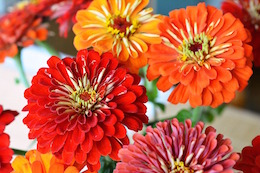
Zinnia:
This flower is native to the southwestern United States to South America. They bloom in the summertime. They come in white, yellowish green, yellow, orange, red and purple.
